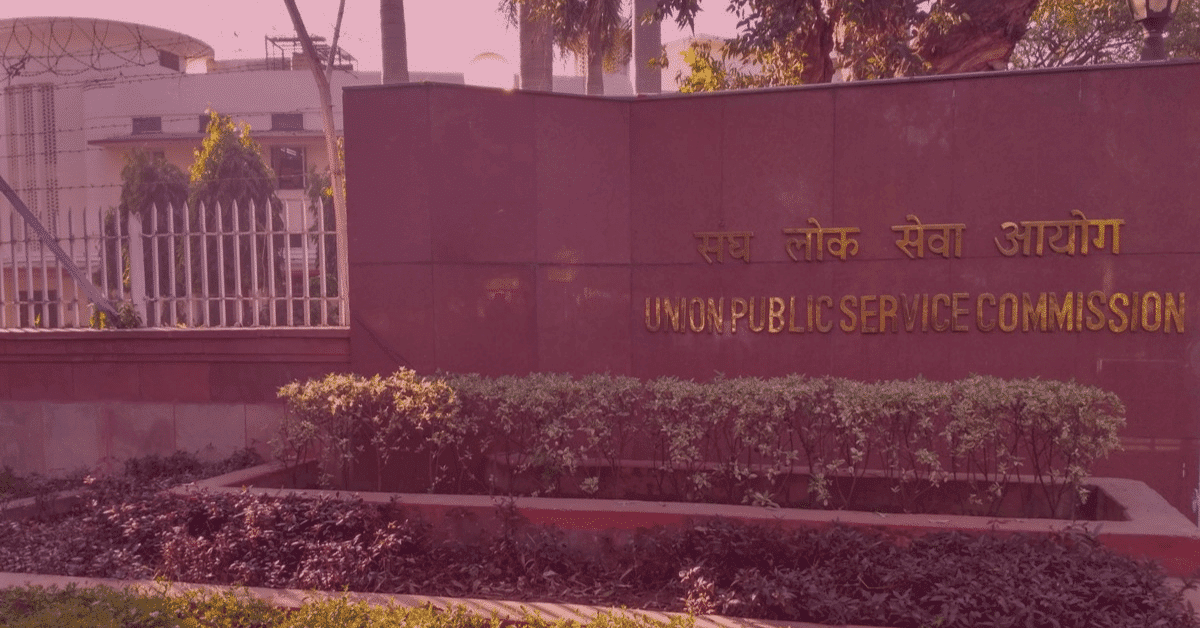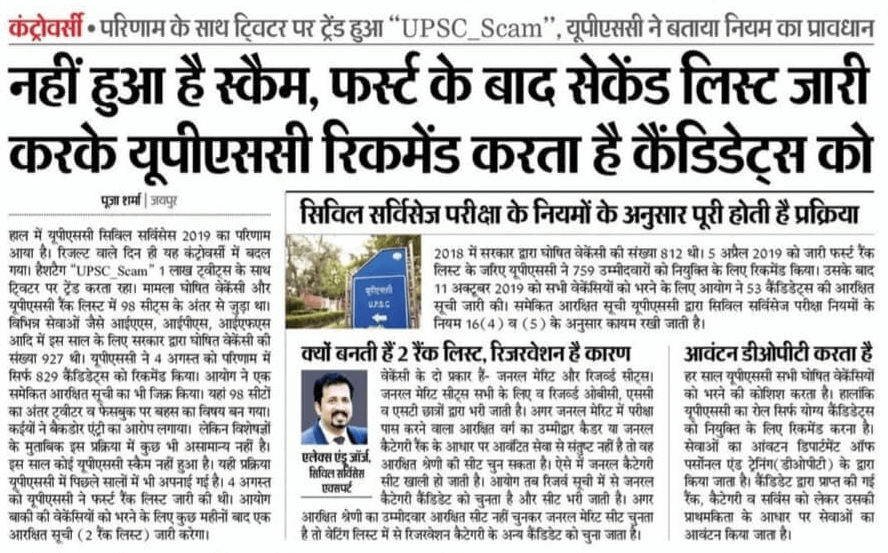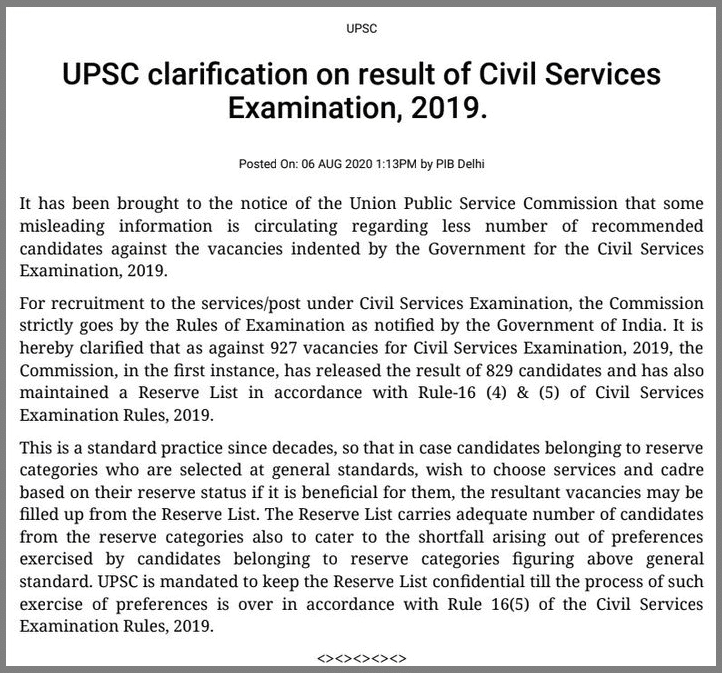 A few misunderstood tweets by some journalists regarding the UPSC selection process became viral on social media this year. Many aspirants became confused after going through the tweets. In this post, we would like to clarify that there is no ‘UPSC Scam’.
A few misunderstood tweets by some journalists regarding the UPSC selection process became viral on social media this year. Many aspirants became confused after going through the tweets. In this post, we would like to clarify that there is no ‘UPSC Scam’.
UPSC Civil Services Examination 2019 results (declared on 4th August 2020) turned controversial, as the hashtag “UPSC_Scam” became trending on Twitter with around 1,00,000 Tweets. The concern raised by many was regarding the difference of 98 seats with respect to the reported vacancies and the UPSC rank list.
The total number of vacancies reported by the Government to be filled under various services like IAS, IPS, IFS etc in 2019-20 was 927. Union Public Service Commission (UPSC) recommended only 829 candidates while declaring results on 04-08-2020. The Commission also mentioned about a Consolidated Reserve List.
The difference of 98 seats became a topic of debate in social media like Twiter and Facebook, many accusing backdoor-entry.
There is no UPSC Scam!

We would like to clarify that there is nothing unusual in the process.
There is no UPSC Scam this year (2019-2020). The same process was followed by UPSC in previous years too. The list which was published by UPSC on 04-08-2020 is the first rank-list. The Commission will come up with a reserve list (2nd rank-list), after a few months to fill the remaining vacancies.
Reserve list is not a new phenomenon
In 2018, the number of vacancies reported by the Government was 812. Out of this, 759 candidates were recommended by UPSC to appointed via the first rank list (published on April 5th, 2019). UPSC, later, on October 11th, 2019 came up with a reserve list of 53 candidates to fill all vacancies.
The Consolidated Reserve List is maintained by UPSC in accordance with Rule 16 (4) & (5) of the Civil Services Examination Rules.
The reason for 2 rank lists

The reason for 2 rank-list is because of the reservation system used in the recruitment process.
The vacancies are of two types – general merit vacancies (40%) and reserved seats (60%). The general merit seats are open to all candidates while reserved vacancies can only be filled by those candidates who can avail the benefit of reservation like EWS, OBC, SC, and ST.
Rules say that, if a reservation category candidate who clears the exam in general merit is not satisfied with the cadre or service allocated on the basis of general category rank, he or she can choose to use his/her reserved category seat, and get a cadre and service of preference. In that case, the general category seat falls vacant. The commission then picks a general category candidate from its reserve list and fills the seat.
Similarly, if a reserved category candidate does not avail the reserved seat, and instead chose a general merit seat, another reservation category candidate from the waiting list is picked to fill that vacancy.
The role of UPSC is only to recommend suitable candidates; DoPT does the allocation process

Every year, UPSC try to fill almost all the reported vacancies. However, the role of UPSC is only to recommend suitable candidates based on UPSC Civil Services Examination (CSE).
Allocation to various services like IAS, IPS, IFS etc is done by the Department of Personnel and Training (DoPT) under the Ministry of Personnel, Public Grievances and Pensions.
Allocation is done after taking into consideration of the rank secured by the candidate, category he/she belongs, and his/her service preference.






In conclusion we can say, general category students have upper hand in whole selection process.
Because the category students who are selected in general list but at the bottom, they always claim reserve seat.
On the big picture if we exclude some exceptional aspirants, It the students who belongs to general category came for good family background (in terms of knowledge, resources and guidance). So there is more chances of getting good marks to them. So general list mostly contain general candidates and in the end category aspirants suffers. As the reservation policy itself work against them. In general we can say, 2-3% general category people will enjoy 50% reservation. There is much more reforms needed to be a fair system in both letter and spirit.